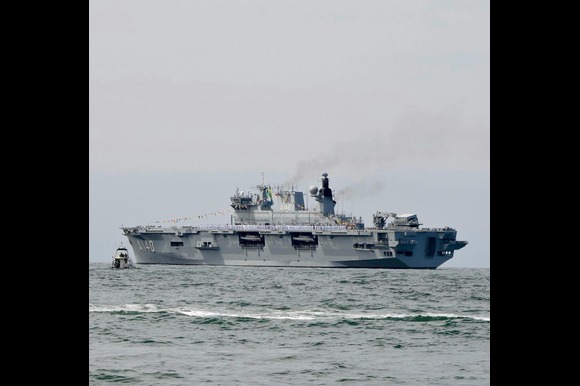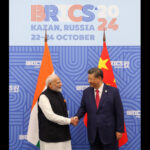Tensions have escalated between Germany and China following allegations that a Chinese warship targeted a German military aircraft with a laser, prompting strong diplomatic protests and denials from Beijing.
Germany claims the incident occurred earlier this month while one of its reconnaissance aircraft was participating in European Union-led operations aimed at safeguarding shipping routes in the Red Sea from missile attacks by Yemen’s Houthi rebels. The German Foreign Ministry has since summoned the Chinese ambassador, describing the alleged act as “entirely unacceptable.” The European Union has also taken diplomatic action, summoning China’s envoy to the bloc.
China, however, has vehemently denied the accusation, with its officials stating that Berlin’s version of events is “totally inconsistent with the facts known by the Chinese side.” According to Germany, the reconnaissance aircraft was operating over the Red Sea when it was targeted by a laser fired from a Chinese naval vessel that had been observed in the area. German officials noted that the warship made no attempt to communicate with the aircraft.
The aircraft, in response to the perceived threat, was forced to abort its mission and return to its base in Djibouti, an East African nation where Germany maintains a military presence. Berlin condemned the alleged targeting, accusing China of “endangering German personnel and disrupting the operation.”
EU foreign policy spokesperson Anouar El Anouni also weighed in on the matter, describing the incident as “dangerous and unacceptable.” He stated that the action not only jeopardized the safety of the crew but also undermined the mission’s objectives.
In a press briefing held on Wednesday, Chinese Foreign Ministry spokesperson Mao Ning responded by asserting that the Chinese navy had been conducting “escort operations” in the Gulf of Aden and off the coast of Somalia. Mao called for both nations to adopt a “fact-based attitude” and to enhance communication in a timely manner to avoid “misunderstanding and misjudgement.”
This is not the first time China has faced allegations of using lasers to interfere with foreign military aircraft. The United States has previously accused Beijing of similar behavior—claims China has consistently denied. Lasers, particularly those being developed for military applications, can pose serious risks. They can be used to temporarily blind or distract pilots and are part of a new generation of weapons designed to neutralize airborne threats.
China has maintained a growing presence in the region since 2017, when it established its first overseas military base in Djibouti. Beijing asserts that the base supports anti-piracy operations and ensures freedom of maritime navigation. However, Western governments have long voiced concerns over China’s strategic intentions in the area.
Djibouti is located at a key maritime chokepoint connecting the Gulf of Aden to the Red Sea and, ultimately, the Suez Canal—one of the most vital shipping routes in global trade. The base’s location has added to worries among Western powers, as multiple countries, including the US, Japan, and France, also maintain military installations there.
As diplomatic exchanges continue, the incident has heightened already existing tensions over China’s growing naval presence and the broader implications for security in the region. Both sides now face increased pressure to clarify the incident and prevent future confrontations.






